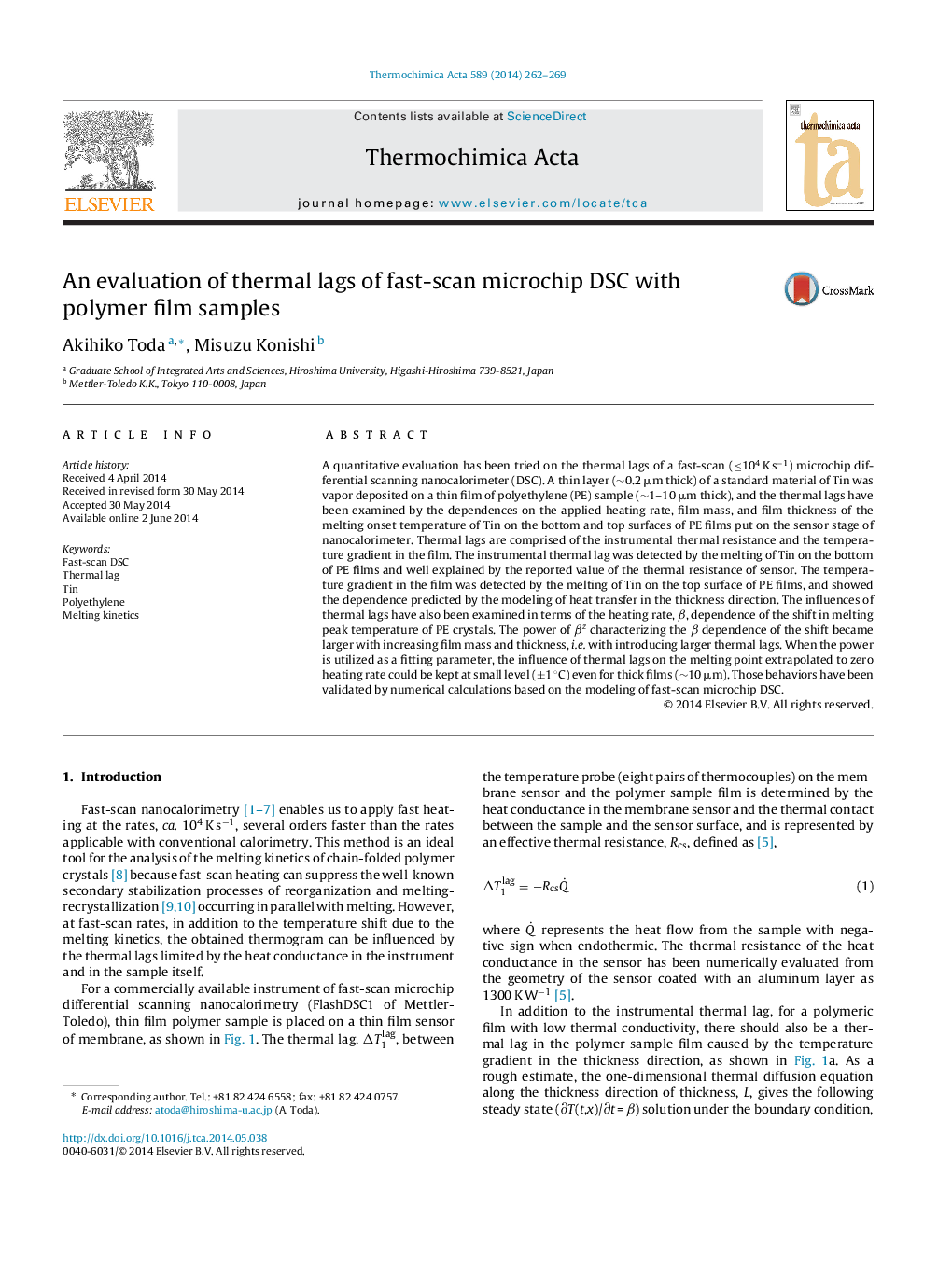| کد مقاله | کد نشریه | سال انتشار | مقاله انگلیسی | نسخه تمام متن |
|---|---|---|---|---|
| 673316 | 1459495 | 2014 | 8 صفحه PDF | دانلود رایگان |

• Thermal lags have been examined in a fast-scan differential scanning nanocalorimeter.
• Melting onset temperature has been studied of a thin Tin layer vapor deposited on polyethylene film.
• Thermal lags influence the analysis of melting kinetics of polymer crystals.
• Numerical calculations validate the experimental results.
A quantitative evaluation has been tried on the thermal lags of a fast-scan (≤104 K s−1) microchip differential scanning nanocalorimeter (DSC). A thin layer (∼0.2 μm thick) of a standard material of Tin was vapor deposited on a thin film of polyethylene (PE) sample (∼1–10 μm thick), and the thermal lags have been examined by the dependences on the applied heating rate, film mass, and film thickness of the melting onset temperature of Tin on the bottom and top surfaces of PE films put on the sensor stage of nanocalorimeter. Thermal lags are comprised of the instrumental thermal resistance and the temperature gradient in the film. The instrumental thermal lag was detected by the melting of Tin on the bottom of PE films and well explained by the reported value of the thermal resistance of sensor. The temperature gradient in the film was detected by the melting of Tin on the top surface of PE films, and showed the dependence predicted by the modeling of heat transfer in the thickness direction. The influences of thermal lags have also been examined in terms of the heating rate, β, dependence of the shift in melting peak temperature of PE crystals. The power of βz characterizing the β dependence of the shift became larger with increasing film mass and thickness, i.e. with introducing larger thermal lags. When the power is utilized as a fitting parameter, the influence of thermal lags on the melting point extrapolated to zero heating rate could be kept at small level (±1 °C) even for thick films (∼10 μm). Those behaviors have been validated by numerical calculations based on the modeling of fast-scan microchip DSC.
Journal: Thermochimica Acta - Volume 589, 10 August 2014, Pages 262–269